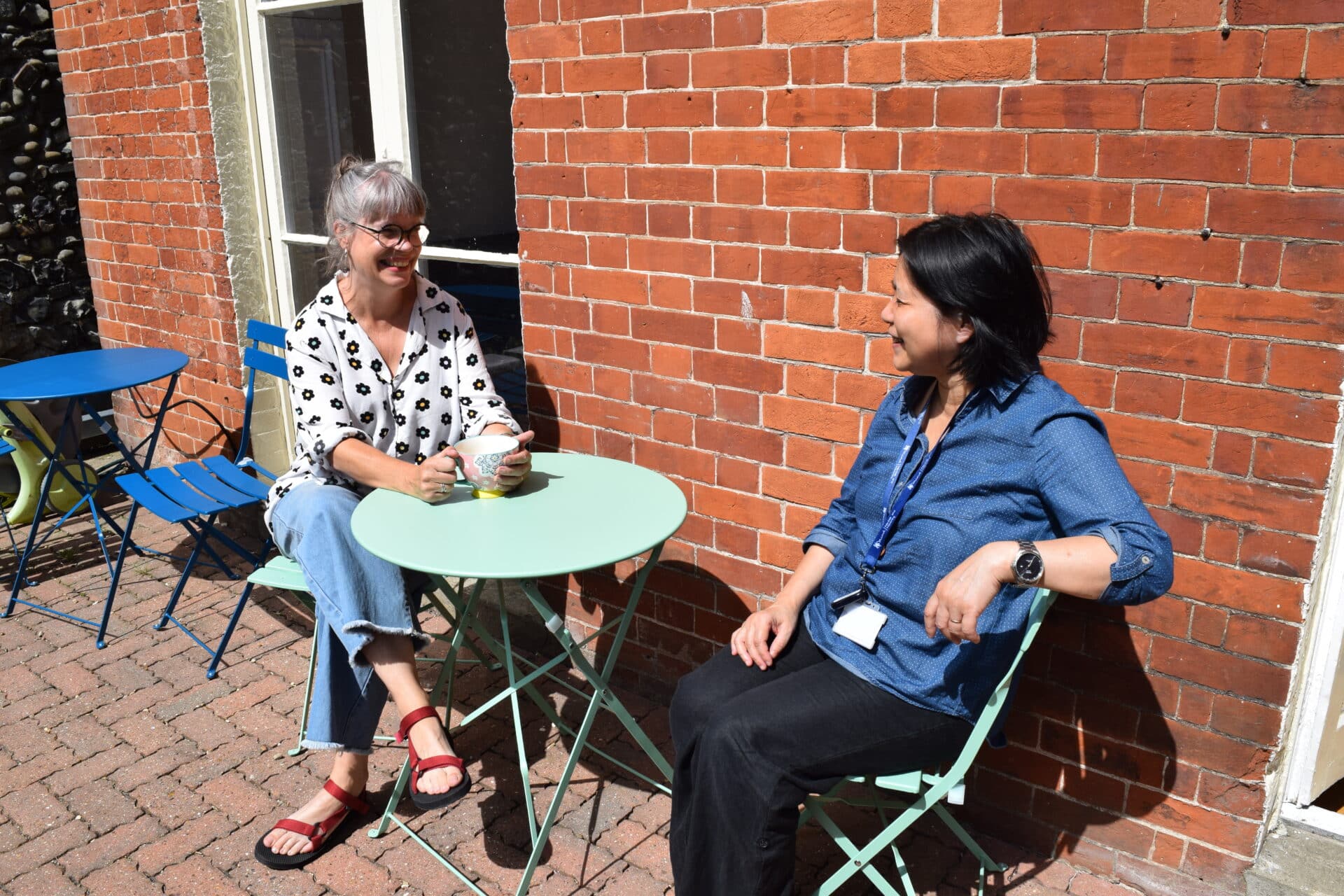Sue Lambert Trust is launching a new group support session as part of its therapeutic offer for clients.
Read our latest press release to find out more:
Sue Lambert Trust, which supports people who have experienced sexual abuse or sexual violence, including domestic abuse, is expanding its services by launching a new group support session as part of its therapeutic offer for clients.
The pilot programme will be run by Sue Lambert Trust’s team from the REST hub, (Churchman House, Bethel Street, Norwich) a community wellbeing hub managed by mental health charity Norfolk and Waveney Mind. It marks the first time Sue Lambert Trust has taken its free, specialist therapeutic support services out into the community.
Sue Lambert Trust is the only charity of its kind in Norfolk and currently supports more than 300 people each week.
It is launching a trial of this new four-week course at REST in Norwich, with potentially more to follow if the pilot proves successful with the trust’s diverse client base.
Placing itself in local community hubs marks a new direction for Sue Lambert Trust, as it looks for new ways to increase capacity and meet ever-rising demand. Currently, over 50 people every month are contacting the charity for help.
Anyone aged 11 or over can self-refer to Sue Lambert Trust. Whether the abuse or assault took place recently, or decades ago, the charity is there to listen and help people recover, whenever they feel ready to talk. All services are delivered free of charge.
Clients are matched with a professionally qualified volunteer counsellor, who supports them through a course of therapeutic counselling, enabling people to heal and re-build their lives.
Therapeutic groups and peer support sessions are also offered, alongside empowering non-clinical support work from a dedicated team who work with clients in lots of areas including housing, finances, accessing mental health services and personal wellbeing.
The new sessions being held at REST in Norwich have been created for, and with the help of, sexual abuse survivors with content covering areas such as how to navigate personal relationships, self-care, and equipping people with the tools and knowledge for living well after experiencing trauma.
All participants have volunteered to take part and will give their feedback to help shape future courses.
Ben Marshall, Groundwork and Resilience Programme Manager at Sue Lambert Trust has compiled the new course, a process which involved combining insights from research and the lived experience of people already engaging with the Trust’s services.
Ben explains; “The trauma of sexual abuse and sexual violence can lead to relationship breakdowns, addictions, severe mental ill health, financial struggles as well as suicide. For some people, they live with this for decades, before feeling ready to speak out and ask for help. So, when someone has bravely picked up the phone, we want to be there for them as soon as we possibly can. Delivering support sessions out in the community is one way we think we can increase capacity and reach more people. If the pilot goes well, we hope to replicate it in other areas of Norfolk.”
Clive Evans, CEO of Sue Lambert Trust, says their work changes and saves lives; “We have been supporting victims of sexual abuse and sexual violence in Norfolk for 40 years, and we know that with the right, person-centered support, there is always hope and the chance to live a happy, fulfilling life again.
“Our team members listen, care and give people space and the professional support to begin the process of recovery. At the end of their counselling programme, some clients tell us that without Sue Lambert Trust being there for them, they wouldn’t be here today.”
Ben adds; “In a group setting, we never discuss the specifics of each person’s experience, and everything is carefully covered in a non-triggering way. Peer support, forming validating, meaningful connections with others who have similar experiences, alongside exchanging insights on what actually helps, is incredibly important for the people we work with. And for those who feel comfortable to do so, talking to others in a safe, secure environment like REST can aid the healing process.
“We are very grateful to Norfolk and Waveney Mind’s REST service for enabling us to roll this pilot project out in partnership with them. Post-pandemic, we are looking at ways we can take our support services out into the community to be more visible to victims of sexual abuse. Collaborating with other mental health specialists is key.”
